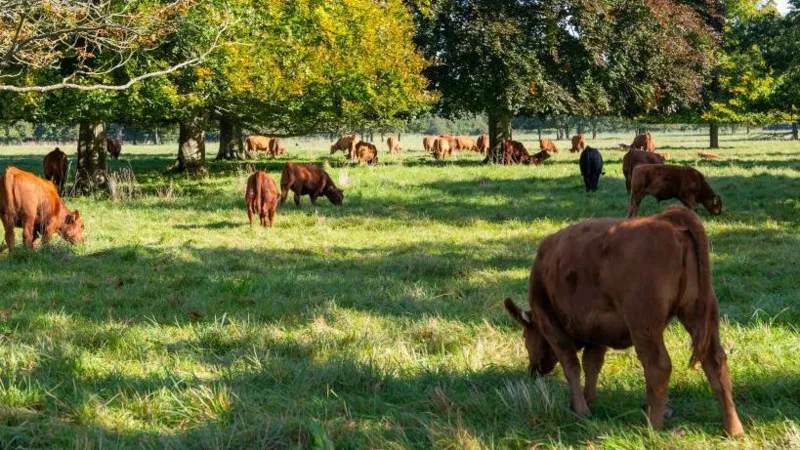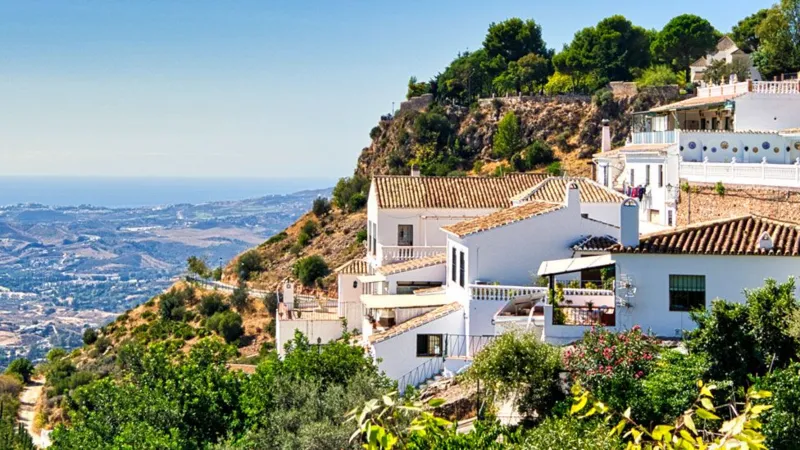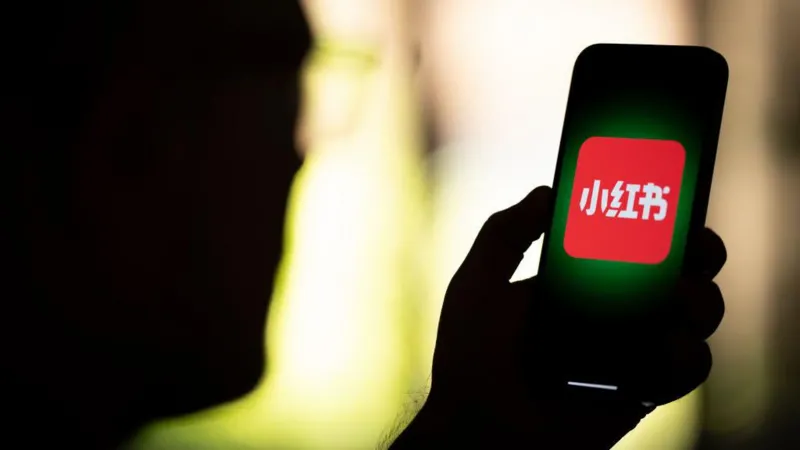Business
Isabel dos Santos hits out over UK’s ‘dirty money’ sanctions

Angolan tycoon Isabel dos Santos, once dubbed “Africa’s richest woman”, has hit out at the UK for imposing sanctions on her, telling the BBC the move came as a surprise as she had not been found guilty of “any corruption in any court in any country”.
Last month, the daughter of Angola’s former president was described by the UK government as a “notorious kleptocrat” and slapped with an asset freeze and travel ban for allegedly siphoning wealth out of oil-rich Angola.
She said Angola’s government was behind a campaign to tarnish her image.
“It’s political at the end of the day,” Dos Santos, 51, told the BBC Africa Daily podcast from her base in Dubai.”There was not an inquiry, where somebody came and investigated and looked at evidence or asked me to clarify. There was no due process,” she said.
UK Foreign Secretary David Lammy announced the sanctions on Dos Santos as part of his campaign to crack down on “dirty money”.
A government statement alleged she had “systematically abused her positions at state-run companies to embezzle at least £350m [$442m], depriving Angola of resources and funding for much-needed development”.
A spokesperson for Angola’s attorney-general said it was not a political institution and only investigated evidence of alleged criminality. They said she had been accused of several crimes and so needed to defend herself.
A spokesperson for the British foreign office said that under Global Anti-Corruption Sanctions Regulations, the UK could “designate an individual where there are reasonable grounds to suspect that the individual is or has been involved in serious corruption”. They also pointed out that anyone sanctioned could ask for a review at any time.
The allegations against Dos Santos, which she denies, were first made in 2020 when BBC Panorama reported on leaked documents that had been shared with the International Consortium of Investigative Journalists (ICIJ).
The exposé , known as “Luanda Leaks”, alleged that one of the most suspicious deals had been made via a London-based company.
LISTEN: Africa Daily’s Isabel dos Santos interview
Africa’s richest woman ‘ripped off Angola’
Angola’s Isabel dos Santos eyes the presidency
Dos Santos, the eldest daughter of former President José Eduardo dos Santos – in power from 1979 to 2017 – was educated at private schools in the UK during Angola’s long civil war.
After graduating from King’s College London as an electrical engineer, she took up an office job at a consultancy firm in Europe.
But in her early twenties, Dos Santos decided she wanted to pursue a more entrepreneurial career back home, telling the BBC she started out by delivering crates of beer – Uber style – to restaurants and shops.
She went on to build a huge business empire, setting up a mobile phone company, a satellite TV operator, a commercial bank, a brewery and a cement factory – with stakes in other companies in Angola and Portugal.
A month before her 40th birthday, she made it to Forbes magazine’s rich list and was not only said to be Africa’s richest woman but also the continent’s youngest billionaire.
Dos Santos told BBC Africa Daily she never thought of herself in that way but did see herself as a “pioneer”.
“I’m also my country’s largest private employer. I’ve created over 200,000 jobs. I’ve been one of my country’s largest taxpayers and contributed the most to build Angola’s economy.”
In 2016, she was controversially put in charge of the struggling state-owned oil firm, Sonangol. Her appointment was challenged by critics at the time but the Supreme Court stood by it, she said.
“I did have a track record in the private sector. I have a particular knowledge of turning around companies… that are not doing well, to drive them to efficiency.”
Some of the most serious allegations of corruption against her date from her time in charge of Sonangol.
Within months of her father stepping down in 2017, she was sacked by his chosen successor, President Joao Lourenço, and two years later her assets were frozen.
The former first daughter of Angola believes Lourenço, who targeted the Dos Santos family as part of an anti-corruption drive, has betrayed her father: “He started blaming the past, saying that everything that happened before him was bad.
“But he himself is from the [ruling] MPLA, he was the vice-president of the party. He was minister of defence.
“If anything, I think he had a lot more to do with the Angolan economy and the Angolan decision-making and the political decision-making than most Angolans.”
Dos Santos is also angry that despite her assets being frozen in Angola five years ago, the case has not yet been heard in court – something she says would usually happen within, at most, 18 months as it is a civil case that tends to involve allegations of unpaid debts. She says she faces no criminal proceedings.
She also alleges that the original freezing order was based on faked documents, including a passport in her name bearing the signature of late martial arts expert Bruce Lee.
The spokesperson for Angola’s attorney-general said they would not discuss the details of any ongoing legal disputes in public but said that any evidence that documents had been falsified should be presented in court.
By 2021 Forbes had dropped her from its list of top billionaires – Dos Santos explains that the asset freeze means she can no longer get dividend payments and is barred from receiving any financial contributions from her companies.
The mother of three has also had to contend with personal losses over the last few years – her husband died in a diving accident and when her father died in 2022, she did not go back to Angola to attend his funeral.
If she were to return to Angola, she may well face arrest – at the government’s behest, Interpol has issued a Red Notice, which is a request to “locate and provisionally arrest” someone, however it is not an international arrest warrant.
Dos Santos says after these difficult years and further asset freezes, she now wants people to hear her side of a “complex” story to “hopefully start clarifying the misconceptions that exist”.
When asked if she would ever stand for the presidency, she said it was “a possibility” – echoing comments she made to the BBC four years ago.
“Look, I will always serve my country,” she said. “To lead is to serve, and I wish to serve Angola, whether it’s in politics, or whether it’s in business, whe
Business
UK bans cattle, pigs and sheep imports from Germany after foot-and-mouth case

The UK has introduced a ban on pigs, sheep and cattle imports from Germany after a case of foot-and-mouth disease was confirmed in the country.
The government said on Tuesday it will no longer approve health certificates for animals, fresh meat and animal products susceptible to the disease to prevent its spread to the UK where there are currently no confirmed cases.
While there is no risk to humans or food safety, foot-and-mouth is highly contagious in pigs, sheep and cattle, as well as other cloven-hoofed animals.
In 2001 and 2007, the UK suffered major outbreaks of the disease, leading to millions of livestock animals being slaughtered across the country.
Farming minister Daniel Zeichner said the government will do “whatever it takes to protect our nation’s farmers from the risk posed by foot-and-mouth”.
He added: “That is why restrictions have immediately been brought in on animal products from Germany to prevent an outbreak, and we will not hesitate to add additional countries to the list if the disease spreads.
“We will continue to keep the situation under review, working closely with the German authorities.”
Foot-and-mouth disease is a legally notifiable disease, meaning it is an offence not to report a case to the government.
As well as culling animals, farmers affected by the disease could see reduced milk production, as well as wider economic implications such as the loss of access to foreign markets for animals and their subsequent products.
Major outbreaks in 2001 and 2007 cost the public and private sectors billions.
For cattle, symptoms of the disease include blisters and sores on their feet, mouth and tongue, as well as lameness, fever and reluctance to feed.
In sheep and pigs, symptoms typically present as lameness and blisters.
UK Chief Veterinary Officer Dr Christine Middlemiss has asked “livestock keepers to exercise the upmost vigilance for signs of disease, follow scrupulous biosecurity, and report any suspicion of disease immediately to the Animal and Plant Health Agency”.
The government recently announced a £200m investment in the UK’s main research and laboratory testing facilities at Weybridge to bolster protection against animal disease.
Business
Spain plans 100% tax for homes bought by non-EU residents

Spain is planning to impose a tax of up to 100% on the value of properties bought by non-residents from countries outside the EU, such as the UK.
Announcing the move, Prime Minister Pedro Sánchez said the “unprecedented” measure was necessary to meet the country’s housing emergency.
“The West faces a decisive challenge: To not become a society divided into two classes, the rich landlords and poor tenants,” he said.
Non-EU residents bought 27,000 properties in Spain in 2023, he told an economic forum in Madrid, “not to live in” but “to make money from them”.
“Which, in the context of shortage that we are in, [we] obviously cannot allow,” he added.
The move was designed to prioritise available homes for residents, the Spanish prime minister said.
Sánchez did not provide any more details on how the tax would work nor a timeline for presenting it to parliament for approval, where he has often struggled to gather sufficient votes to pass legislation.
His office described the proposed measure as a way to limit the purchase of homes by “non-resident non-EU foreigners”. In Spain, people are classed as non-residents if they live in the country for less than 183 days in a single year.
It added: “The tax burden that they will have to pay in case of purchase will be increased up to 100% of the value of the property, in line with countries such as Denmark and Canada.”
Currently non-residents can be expected to pay 6-10% in tax on the property’s value depending on the region and if the property is new or not.
The Spanish government said the proposal would be finalised “after careful study”.
Business
TikTok users flock to Chinese app RedNote as US ban looms

TikTok users in the US are migrating to a Chinese app called RedNote with the threat of a ban just days away.
The move by users who call themselves “TikTok refugees” has made RedNote the most downloaded app on Apple’s US App Store on Monday.
RedNote is a TikTok competitor popular with young people in China, Taiwan and other Mandarin-speaking populations.
It has about 300 million monthly users and looks like a combination of TikTok and Instagram. It allows users, mostly young urban women, to exchange lifestyle tips from dating to fashion.
Supreme Court justices are due to rule on a law that set a 19 January deadline for TikTok to either sell its US operations or face a ban in the country.
TikTok has repeatedly said that it will not sell its US business and its lawyers have warned that a ban will violate free speech protections for the platform’s 170 million users in the US.
-

 Entertainment6 months ago
Entertainment6 months agoEarthquake scientists are learning warning signs of ‘The Big One.’ When should they tell the public?
-

 International6 months ago
International6 months agoTarar accuses Imran Khan of conspiring with Faiz Hameed to destabilise Pakistan
-

 International4 months ago
International4 months agoPTI Announces Not to Boycott New Committees
-

 Business4 months ago
Business4 months agoMajor Corruption Scandal Uncovered at WASA Multan: Rs1.5 Billion Embezzlement Exposed
-

 Business6 months ago
Business6 months agoThe Impact of QR Codes on Traditional Advertising
-

 Business3 months ago
Business3 months agoHigh Court Blocks MDCAT Merit List Amid Controversy Over Exam Error
-

 Business6 months ago
Business6 months agoThe Benefits and Problems of International Trade in the Context of Global Crisis
-

 Business5 months ago
Business5 months agoFraud by Pakistani Firm Sparks Outrage in Business Community; Concerns Rise Over International Investment






